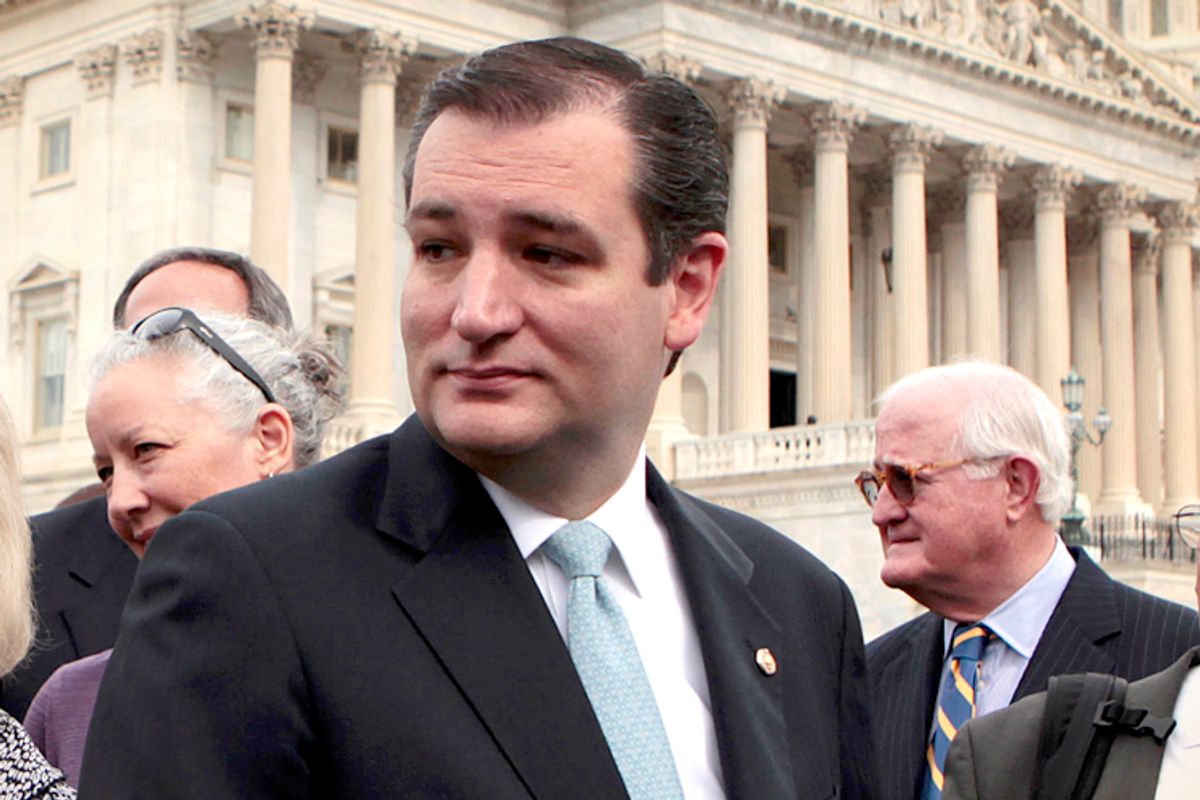Conservative Republicans have lost their fight over the shutdown and debt ceiling, and they probably won’t get major spending cuts in upcoming negotiations over the budget.
But they’re winning the big one: How the nation understands our biggest domestic problem.
They say the biggest problem is the size of government and the budget deficit.
In fact our biggest problem is the decline of the middle class and increasing ranks of the poor, while almost all the economic gains go to the top.
The Labor Department reported Tuesday that only 148,000 jobs were created in September — way down from the average of 207,000 new jobs a month in the first quarter of the year.
Many Americans have stopped looking for work. The official unemployment rate of 7.2 percent reflects only those who are still looking. If the same percentage of Americans were in the workforce today as when Barack Obama took office, today’s unemployment rate would be 10.8 percent.
Meanwhile, 95 percent of the economic gains since the recovery began in 2009 have gone to the top 1 percent. The real median household income continues to drop, and the number of Americans in poverty continues to rise.
So what’s Washington doing about this? Nothing. Instead, it’s back to debating how to cut the federal budget deficit.
The deficit shouldn’t even be an issue because it’s now almost down to the same share of the economy as it’s averaged over the last thirty years.
The triumph of right-wing Republicanism extends further. Failure to reach a budget agreement will restart the so-called “sequester” — automatic, across-the-board spending cuts that were passed in 2011 as a result of Congress’s last failure to agree on a budget.
These automatic cuts get tighter and tighter, year by year — squeezing almost everything the federal government does except for Social Security and Medicare. While about half the cuts come out of the defense budget, much of the rest come out of programs designed to help Americans in need: extended unemployment benefits; supplemental nutrition for women, infants and children; educational funding for schools in poor communities; Head Start; special education for students with learning disabilities; child-care subsidies for working families; heating assistance for poor families. The list goes on.
The biggest debate in Washington over the next few months will be whether to whack the federal budget deficit by cutting future entitlement spending and closing some tax loopholes, or go back to the sequester. Some choice.
The real triumph of the right has come in shaping the national conversation around the size of government and the budget deficit – thereby diverting attention from what’s really going on: the increasing concentration of the nation’s income and wealth at the very top, while most Americans fall further and further behind.
Continuing cuts in the budget deficit – through the sequester or a deficit agreement — will only worsen this by reducing total demand for goods and services and by eliminating programs that hard-pressed Americans depend on.
The President and Democrats should re-frame the national conversation around widening inequality. They could start by demanding an increase in the minimum wage and a larger Earned Income Tax Credit. (The President doesn’t’ even have to wait for Congress to act. He can raise the minimum wage for government contractors through an executive order.)
Framing the central issue around jobs and inequality would make clear why it’s necessary to raise taxes on the wealthy and close tax loopholes (such as “carried interest,” which enables hedge-fund and private-equity managers to treat their taxable income as capital gains).
It would explain why we need to invest more in education – including early-childhood as well as affordable higher education.
This framework would even make the Affordable Care Act more understandable – as a means for helping working families whose jobs are paying less or disappearing altogether, and therefore in constant danger of losing health insurance.
The central issue of our time is the reality of widening inequality of income and wealth. Everything else — the government shutdown, the fight over the debt ceiling, the continuing negotiations over the budget deficit — is a dangerous distraction. The Right’s success in generating this distraction is its greatest, and most insidious, triumph.



Shares